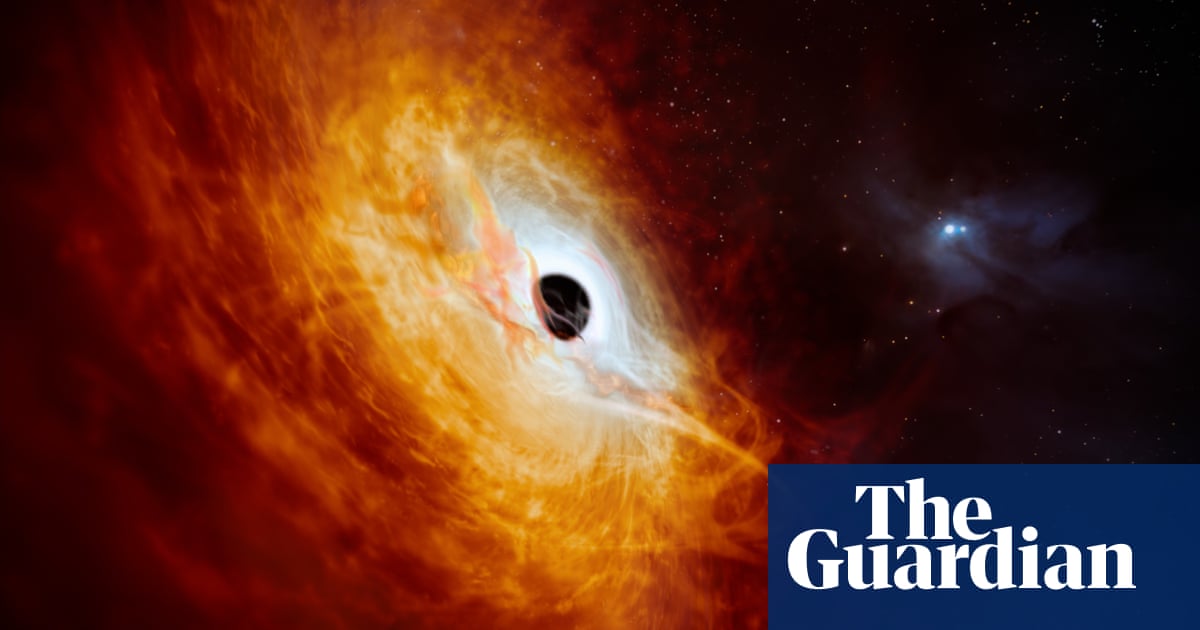The brightest known object in the universe, a quasar 500tn times brighter than our sun, was âhiding in plain sightâ, researchers say.
Australian scientists spotted a quasar powered by the fastest growing black hole ever discovered. Its mass is about 17bn times that of our solar systemâs sun, and it devours the equivalent of a sun a day.
The light from the celestial object travelled for more than 12bn years to reach Earth.
Australian National University scientists first spotted it using a 2.3m telescope at the universityâs NSW Siding Spring Observatory in Coonabarabran. They then confirmed the find using the European Southern Observatoryâs (ESOâs) Very Large Telescope, which has a primary mirror of 39m.
The findings by the ANU researchers, in collaboration with the ESO, the University of Melbourne, and Franceâs Sorbonne Université have been published in Nature Astronomy.
Lead author, ANU associate professor Christian Wolf, said it was the most luminous known object in the universe, and that its incredible rate of growth meant a âhuge release of light and heatâ â and that he doubted its record would ever be beaten.
The light is emitted from an âaccretion discâ that is seven light years in diameter. That disc is where material is getting dragged into and spiralling around the black hole, before it crosses the event horizon.
As that material smashes into other material it creates vast amounts of light and heat.
âIt looks like a gigantic and magnetic storm cell with temperatures of 10,000 degrees Celsius, lightning everywhere and winds blowing so fast they would go around Earth in a second,â Wolf said.
âThis storm cell is seven light years across, which is 50% more than the distance from our solar system to the next star in the galaxy, Alpha Centauri.â
Co-author, Dr Christopher Onken said it was surprising it had remained undetected for this long, and that it was âhiding in plain sightâ.
Wolf said he had two distinct feelings about the discovery.
âOne part is a bit of a shock and awe moment, imagining this hellish place ⦠imagining these conditions, and that nature does produce something even more extreme than weâve contemplated previously,â he said.
âThe other is a bit of cheeky joy â we found it! Nature does not make it easy, itâs like âah, there you are!â.â







